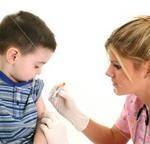After studying the cases of individuals affected by swine flu, doctors came across groups that are more susceptible to the disease. While most people are curious about the causes, precautions to be taken and symptoms of the viral infection, it is also essential to learn whether you fall within a group that is at an increased risk.
Some individuals are also at a higher risk of complications if they catch swine flu. They need to start taking antivirals (Tamiflu or Relenza) as soon as it is confirmed that they have the illness. Doctors may recommend some high-risk patients to take antivirals even before they have visible symptoms, if someone close to them has swine flu.
Pregnancy: 
Many cases of pregnant women have been reported. Studies suggest that pregnant women are at a high risk of complications from pandemic swine flu. During pregnancy, the immune system of a woman becomes weaker. This could make them less resistant to the disease.
Age:
Swine flu symptoms are more severe in the elderly, just like the seasonal flu. However, the infection strikes young peoples more.
Children under 5 are also at higher risk of swine flu complications. Medical conditions like diabetes and lung diseases also make kids susceptible to the pandemic flu.
In general, most vulnerable to such flu complications are poeple over 65 and kids under 2.
Aspirin is a risky drug for people who have already acquired the flu. It raises a person’s risk of a dangerous complication called Reye’s syndrome. Those who are under the age of 19 and are on a long-term aspirin therapy, face an unusual risk.
Lung diseases:
Flu viruses attack the upper and lower airways, thus making it difficult for a person to breathe. Individuals suffering from lung conditions such as asthma or chronic obstructive pulmonary disease are more vulnerable to swine flu. The flu also makes an individual’s lungs susceptible to bacterial infection.
Obesity:
Obesity in general does not increase the susceptibility of an individual, but a number of obese peoples had developed severe swine flu complications. This could be due to the fact that most obese people suffer from diabetes and respiratory problems.
Apart from the above mentioned high risk groups, certain medical conditions also reduce the resistance of an individual:
• Neurological disorders
• Kidney disorders
• Liver disorders
• Metabolic disorders
• Suppression of the immune system
• Ongoing treatment at a medical care facility
• Chronic heart disease



